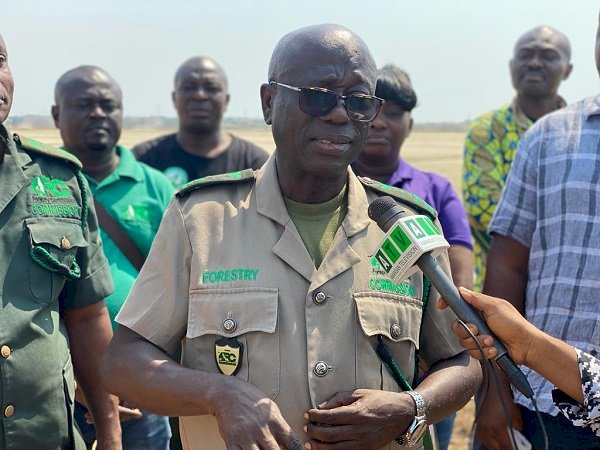
Hardwood timber
Ghana has lost about 30-40 per cent of its natural wetland ecosystem since 1970s, the Executive Director of the Wildlife Division of the Forestry Commission, Mr Bernard Asamoah-Boateng, has disclosed. That, he said, there is an urgent need to embark on restoration of wetlands to offer the critical services they provide to the environment, as well as to continue to support many livelihoods.
“Wetlands play a critical role and they are part of development,” he noted, adding “It is time that we restore our wetlands if we can perpetuate our existence on this earth.”
World Wetland Day
Mr Asamoah-Boateng made the remarks when the Wildlife Division marked this year’s World Wetland Day at the Densu Delta Ramsar site in Accra on Thursday, February 2, 2023. February 2nd each year is celebrated as the World Wetland Day to raise global awareness about the vital role of wetlands in the sustenance of our ecosystem and support for livelihood. This year’s celebration was held on the theme: “It’s time for wetland restoration.”

Mr Asamoah-Boateng said the theme was in alignment with the UN Decade on Ecosystem Restoration, saying “It is important that we maintain our wetland ecosystem.”
Dire consequences
For him, many people’s livelihoods depend on wetlands and that it would be dire should the country look on for its wetlands to be destroyed by some individual developers and encroachers. “The consequences of the destruction of wetlands are clear for everyone to see”, he noted, pointing out that more than more than 80 per cent of wetlands have been lost since the 1700s.
He expressed the concern that currently, urbanisation and it’s negative consequences were taking a toll on Ghana’s wetlands. “Encroachment, pollution from point and diverse sources, excessive and illegal resource exploitation and inadequate implementation of management measures by all stakeholders have led to the loss of most critical and sensitive wetlands ecosystems,” Mr Asamoah-Boateng noted, were contributing to the fast depletion of the country’s wetlands.

For him, the livelihood of women who depend on the wetlands resources “is also gradually being threatened.”
Protection of wetlands
“We have reached an inflection point where we need to rethink how humans impact the environment,” Mr Asamoah-Boateng said, calling on all Ghanaians to contribute to the protection and restoration of wetlands in order for the country not to suffer any environmental challenges in the near future, particularly in the areas where wetlands are located.
He also commended the PAMBROS salt industry for their support in the protection of the Densu Delta Ramsar site. He, however, expressed concern over encroachment of lands belonging to the Densu Delta Ramsar Site, indicating that the Wildlife Division will continue to embark on sensitisation exercise to help drum home the essence to protect wetlands in the country.

